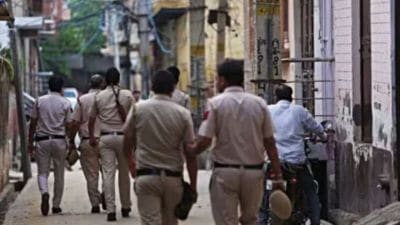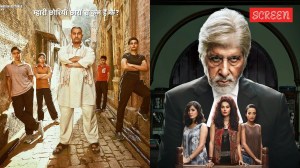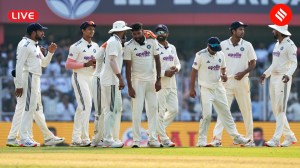Tea Parties, Raj Bhavan
Failure to host a tea party on Independence Day by a Governor is not just bad manners. It is a serious constitutional lapse warranting his r...

Failure to host a tea party on Independence Day by a Governor is not just bad manners. It is a serious constitutional lapse warranting his removal and transfer. So believes our Home Minister. Dietary habits can also prove costly. Prabhudas Patwari, appointed by the Morarjibhai Janata Government, in keeping with his Gandhian ideology, had put restrictions on drinking and smoking and serving of non-vegetarian food in Raj Bhavan. The succeeding Congress government considered this a gross failure by the Governor to entertain VIPs appropriately. So out went Prabhudas Patwari. Are we with Alice in Wonderland? No, in India this bizarre state of affairs is unfortunately a reality.
The malady lies in not appreciating that the ‘‘Governor is not an employee of the Central Government…His is an independent constitutional office which is not subject to the control of the Government of India’’, as authoritatively ruled by a Constitution Bench of the Supreme Court in May 1979.
The Centre’s power to remove or transfer a Governor cannot be disputed. But the reasons for such action must be grounded on acts of commission or omission which render the Governor unfit to occupy the gubernatorial office. Governors cannot be shunted away in the fashion of Henry the VIII, the much-married monarch who cast away his wives at his whim. The grounds for removal or transfer cannot be irrational or capricious or for extraneous considerations. Fairness requires that an opportunity of an explanation be afforded to the Governor. This is one of the recommendations of the Sarkaria Commission, apart from the recommendation regarding consultation with the Chief Minister. Its acceptance would lead to harmonious Centre-State relations and remove a festering irritant.
Silent and Talkative Judges
Lawyers are confronted with two types of judges: the silent and the talkative. Both are unsatisfactory. The judge who maintains monastic silence with the inscrutable face of the sphinx poses a problem. The lawyer who is arguing does not know what is passing in the judge’s mind, whether he is inclined to accept his argument or has doubts about its correctness. Unless the judge articulates his thinking, the lawyer cannot effectively put forward his case. If the aim of advocacy is persuasion, a thoroughly silent judge is a handicap. I faced this problem whilst arguing the first Passport case (Satwant Singh Sahney) in the Supreme Court in 1967. The questions put by Subba Rao, CJ, and Shelat J showed receptivity, whilst the remarks of Justices Hidayatullah and Bachawat indicated that they were unpersuaded. The thinking of the fifth judge, Justice Vaidyalingam, was crucial. He remained silent throughout except when in response to my question he said ‘‘Yes, I have a copy of your submissions’’. (Incidentally I won the bet that I would make Justice Vaidyalingam break his silence).
On the other hand, as Lord Chancellor Bacon tells us, ‘‘an over-speaking judge is no well-tuned cymbal’’. And an overactive judge, who takes over the conduct of the case from counsel, is a nuisance. No doubt a judge must not be a mute spectator. He must ensure steady progress of a case by controlling proceedings, not permitting repetitive and rambling arguments and needless vexatious cross-examination. But a judge must not enter the arena of conflict because then ‘‘he drops the mantle of a judge and assumes the robe of an advocate’’. Judges do make unfavourable comments on a party’s case during the course of hearing. That does not mean that the judge has made up his mind. Justice Hidyatullah put the matter in proper perspective: ‘‘If every remark of a judge made from the Bench is to be construed as indicating prejudice, I am afraid most judges will fail to pass the exacting test. In the course of arguments, judges express opinions, tentatively formed, sometimes even strongly; but that does not always mean that the case has been prejudged. An argument in court can never be effective if the judges do not sometimes point out what appears to be the underlying fallacy in the lawyer’s argument…However if the judge unreasonably obstructs the flow of an argument or does not allow it to be raised, it may be said that there has been no fair hearing.’’
In the picturesque language of Justice Chinnappa Reddy ‘‘the court, the prosecution and the defence must work as a team whose goal is justice, a team whose captain is the judge. The judge, like the conductor of a choir, must, by force of personality, induce his team to work in harmony; subdue the raucous, encourage the timid, conspire with the young and flatter the old’’. Phew, judging is not an easy task. Understandably lawyers in lucrative practice who do not possess these attributes shy away from offers of judgeship.






- 01
- 02
- 03
- 04
- 05

























